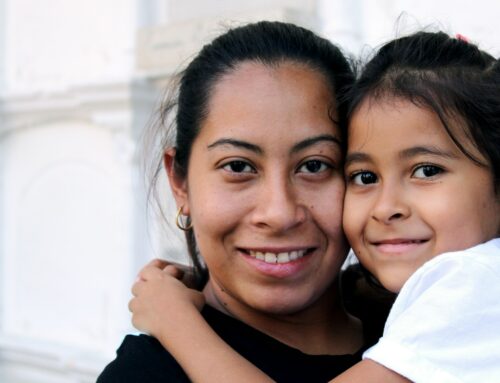Death in the family, divorce, and moving: Three of life’s most stressful events. And if you’re talking about moving to a foreign country, the stress and difficulty will increase exponentially. Even when you move to a place as peaceful and friendly as Canada, the relocation can be very challenging.
And now the good news: Moving to another country can also be one of the most exciting and exhilarating experiences in your life. New places, fresh faces, unexpected opportunities and cultural stimulation at every turn.
The fact is, moving to Canada can be something of an emotional roller coaster. The psychological stages of international relocation can take you to the highest peaks and lowest valleys. But with a little mental preparation, you can navigate the highs and lows, and ultimately end up in a better place: stronger, wiser and more worldly.
Foreign Exchange: Cultural Immersion
The process of relocation involves a lot more than just packing your belongings from House A and shipping them to House B. Moving to another country usually means saying goodbye to your friends and family, to many of your cultural customs, and to the way of life that you’ve always had.
If you’ve lived in the same city or country for most of your life, there’s probably a great number of things that you simply take for granted. You never really think about them because they are so deeply ingrained. But when you arrive in a new country where things are done differently, it can be shocking. From the way that food is presented in a grocery store, to the way that homes are rented and contracts are signed, every culture has a slightly different way of going about things.
Again, if you approach the new culture with an open mind, it can be a wonderfully stimulating experience. In many cases you’ll find that other countries have some pretty intelligent ways of doing things. In other cases you’ll be confirmed that the way something is done back home makes more sense. By trying to understand a new culture, you really end up learning a great deal about your own culture.
But the initial adjustment can be overwhelming, even shocking. As you navigate the new norms and customs, you also have to get on with the business of living. That means getting a roof over your head, registering with government and health care agencies, setting up a phone contract, opening a bank account, and the list goes on.
Expat Adjustment: The Psychological Stages
Some aspects of moving abroad are going to be fun, but there’s definitely work involved. And you’ll constantly need to re-evaluate your own expectations. The experience is different for everyone, but there’s a certain pattern of psychological stages that you should be aware of.
Stage 1: Great Anticipation
The first stage of relocation already finds you pulling in two directions at once. When you first decide to move to Canada or get the notification from your employer, your reaction will most likely be mixed. You should feel excitement for the great international adventure that lies ahead. But you can also expect to feel a little scared of the major changes and many unknowns that such a move will entail.
Whether you feel more fear or more excitement will come down to other details, including your own personality and your current living and working conditions in your home country. And probably, your feelings will fluctuate over time. Some days you will be bubbling with enthusiasm, and other times you may be addled with trepidation. But in most cases, for those who decide to go ahead with the move, the sense of eager anticipation will prevail.
The thrill of adventure may continue throughout the packing and preparation stages, although those could be challenging times as well. Moving out of the house, selling off possessions and finding a place to store the more precious items is bound to be difficult, both physically and emotionally. Planning the logistics of your move will also require great mental energy and attention.
At some point prior to departure it’s not uncommon to feel an acute sense of panic. “Am I ready for this?” you might ask. “Are we doing the right thing?” you wonder doubtfully.
You know that sensation you get when you’re leaving for a long trip and you can’t get over the feeling that you forgot something? Imagine that times 10 or 20. That’s what it’s like when you bid farewell to your home country and head overseas to start a new life.
Stage 2: The Honeymoon Period
Upon arrival, most immigrants and expats experience something like a honeymoon period. You feel like you’re on vacation, and all the little differences are still fresh and new. This is a time to feel very positive, curious and fascinated with your new culture.
Gradually however, the reality of the new country turns out to be somewhat different than what you had imagined. Not necessarily better or worse, but there will always be details that you had not considered or expected. And this requires some patience and adaptation. That might not slow you down at first, but eventually almost everyone who moves to a new country will feel the pang of culture shock and the discomfort of the unfamiliar. This marks the end of the honeymoon period.
Stage 3: Culture Shock
The everyday things will often be the most difficult to get used to. The food probably isn’t the same as what you ate back home. The climate could be significantly different, especially for those moving to Canada from somewhere warmer like India, Brazil or California. Language could be a huge factor, too. If you’re moving to Montreal, for example, it’s pretty important to have some command of the French language.
Then there is the social etiquette and the way people interact. Every cultural has different norms regarding things like personal space (Canadians like to have a lot of it) and punctuality (Canadians generally show up and start meetings when they say they will, but a few minutes may be no big deal).
Some people have more difficulty than others in adapting to a new culture and overcoming the differences. But at one time or another it is very common to feel lonely, bored, or simply frustrated in the new and unfamiliar society. Homesickness is another typical issue that immigrants and ex-pats will face. Generally it’s a feeling that comes and goes.
In some cases, being a foreigner can feel very uncomfortable. It’s difficult to assimilate to a new country and you may have a hard time fitting in. Having to make sense out of the unfamiliar bureaucracy and social customs can be very frustrating. As a result, it’s not unusual to end up feeling inferior or incompetent. You may even resent your new country and disapprove of the way they do things. But don’t distress, this is just another passing phase.
Stage 4: Getting settled in your new country
Eventually you get better acquainted with the new ways of doing things. You will start to make friends, and you will begin to feel more confident and relaxed. With time and patience you can better appreciate all the little differences, and you will probably find that other people actually appreciate your different background as well.
As you assimilate, you can recognize the pros and cons of each culture, and enjoy the confidence of being able to navigate seamlessly between the two. This is a very satisfying stage of the relocation, but the silver lining might also have a cloud. Once you are fully adjusted to your new country, the sense of excitement and adventure wanes, and it’s back to business as usual. Your appetite for exotic lands and foreign travel has been satisfied, and your old fantasy has become the new routine.
Repatriation: Going back home again
Should you decide to move back home, you’ll need to brace yourself for another round of culture shock. In all likelihood, things aren’t quite how you remember them. Your old friends and places have changed, and so have you. For some people, moving back home is even more difficult than leaving home in the first place.
Learn more
At ARIANNE Relocation, we have been helping families, students and professionals move to Canada since 1996. We help our clients navigate all the cultural, commercial and bureaucratic conundrums, and ensure that they start off their new life in Canada on the right foot. We also help Canadians living abroad to move back home. Check our website for a complete range of our relocation products and services.
You can also take a look at the following articles for more helpful information about moving to Canada.
- Canadian Immigration Programs
- Canadian Relocation Services
- Where to live when moving to Canada
- Overcoming loneliness in a relocation
- Canadian culture and customs
PHOTO CREDIT: Mark Koch (Unsplash)







Leave A Comment